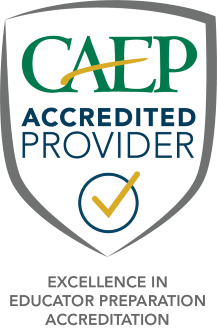Why Study 6-12 Licensure Secondary Science
Unique professional relationships among College of Education faculty and College of STEM faculty provide students with a wealth of resources and opportunities in both the science disciplines and pedagogical practice. The “Short Collaborative for Research on Science & Socioscientific Education” offers networking opportunities among students across different layers of research interests at APSU as well as other academic institutions. The available range of experiences for both science education practice and research helps students deepen their understanding of the historical trajectory and current challenges in the field. The potential for richer contributions emerges as the connections among scholarly work strengthens.
The M.A.T. Secondary 6-12 Science Licensure is well-suited for those who have an undergraduate degree in one of the science disciplines, are highly-motivated for a rewarding career in education, and open to implementing novel instructional strategies in classroom and/or non-formal educational settings. A career in teaching science for full student engagement can be demanding, but it also affords a sense of purpose that may be rarely experienced in other professions.
This program will equip teachers to become proficient leaders in science education and is aligned with state standards for science and the national frameworks for science education. Shortages of qualified science teachers in Tennessee and across the nation have been recognized for decades. The demand for effective teachers of science across all grade levels is expected to increase in the future. Becoming a leader in science education research and practice will position graduates for important roles in cultivating proper skills and scientific mindsets. Outside of the traditional, educational setting, graduates may find meaningful, professional education opportunities in non-formal institutions. Benefits of obtaining a M.A.T. in Secondary 6-12 Science Licensure:
- Completed within two years (additional clinical experience required for
licensure) - Some program coursework is offered in accelerated eight-week terms
- Some courses are offered online
- Improve your science content
knowledge with engaging activity-based learning - Become proficient in using research-based, best pedagogical practices
- Learn to integrate the disciplines for rich, effective student experiences
- Develop the skills to become a leader of science education
The Secondary 6-12 Science Licensure degree concentration is taught by faculty who have vast experience as K-12 science classroom teachers, advanced degrees in both the science disciplines and educational strategies, experience in designing and conducting research on issues in science education, and who have been recognized by a variety of outside entities as leaders and innovators in the field. The faculty bring unique levels of expertise and practical insights into the classroom, exposing students to real-world, science-related problems to be explored by candidates in the same way younger students would be facilitated in investigations. The Educational Specialties Department in the Eriksson College of Education at APSU is a cooperative community of educators and researchers who are equipped and willing to serve on committees to guide students through the research and writing process.
Admission Requirements
For information related to admission requirements please visit the graduate bulletin.
What will I Learn
- Articulate how students learn and develop knowledge of science and scientific process skills.
- Express, in written and oral formats, the knowledge of best practices of modern science instruction.
- Develop inquiry- and problem-based lesson plans in appropriate settings, consistent
with safety guidelines, that are aligned with state standards and national frameworks
for science. Plans will be
designed to engage diverse students in activities that address the nature of science, inquiry, and interactions between science and society. - Construct performance-based assessment strategies to equitably measure progress toward achievement of learning targets in the science classroom and use data-driven approaches to modify instruction based on evaluations and student feedback.
- Demonstrate proficiencies in conducting and presenting original research on relevant problems in science education.
Program Information
Teaching 6-12 Licensure Secondary Science Program Requirements
Teaching 6-12 Licensure Secondary Science (Biology), MAT
Teaching 6-12 Licensure Secondary Science (Chemistry), MAT
*Please note, this is a cohort program which only begins in the Fall term. Courses not taken in sequence may add additional time toward degree completion.
Professional Licensure Disclosure
Students should be aware that licensure and certification requirements vary from state to state and are subject to change. Licensing agencies or boards also may have requirements in addition to an earned degree. APSU recommends that students who are not Tennessee residents or who plan to seek licensure or certification outside the state of Tennessee contact the appropriate licensing agency or board before they enroll in an academic program designed to lead to licensure or certification and discuss their plans with an advisor.
Please visit the Professional Licensure Disclosure webpage to review specific licensure information for your state and academic program.

